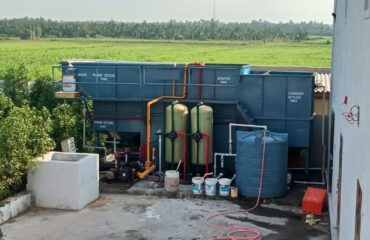Introduction
In the picturesque city of Belgaum, Karnataka, where history and modernity coalesce, the quest for sustainable development takes center stage. As industries flourish and urbanization progresses, the establishment of an Effluent Treatment Plant (ETP) in Belgaum emerges as a crucial step towards ensuring environmental conservation and responsible growth.
Understanding ETPs
An Effluent Treatment Plant (ETP) is a guardian of the environment, dedicated to purifying wastewater generated by industries and urban areas. Through advanced processes and techniques, ETPs remove contaminants from wastewater, preventing pollution of water bodies and preserving ecological balance.
Advantages of ETPs in Belgaum
1. Environmental Protection
Belgaum is blessed with natural beauty, including rivers and green spaces. ETPs play a vital role in preserving this beauty by treating wastewater before its discharge. This proactive approach ensures that water bodies remain untainted and ecosystems thrive.
2. Public Health Assurance
Untreated wastewater poses a threat to public health, carrying harmful pathogens and pollutants. ETPs mitigate this risk by efficiently treating wastewater, ensuring that residents enjoy a clean and safe living environment.
3. Regulatory Compliance
ETPs are not only environmental protectors but also enablers of regulatory adherence. Industries and urban areas are obligated to treat wastewater before release. ETPs assist in fulfilling these legal obligations, fostering a culture of responsible waste management.
4. Resource Conservation
Treated wastewater from ETPs can be repurposed for various non-potable applications, such as irrigation and industrial processes. This practice reduces the demand on freshwater resources, promoting sustainable water management.
Components of ETPs
- Preliminary Treatment: Screening and removal of large debris and solids from wastewater.
- Primary Treatment: Separation of solid particles through settling tanks.
- Secondary Treatment: Biological processes involving microorganisms to break down organic matter.
- Tertiary Treatment: Advanced methods like filtration and disinfection to achieve high water quality.
- Effluent Reuse or Discharge: Treated water can be safely discharged or reused for various applications.
Challenges and Solutions
- Awareness Campaigns: Educating residents and industries about the importance of wastewater treatment and proper disposal practices is essential for success.
- Innovative Technologies: Incorporating state-of-the-art technologies can enhance the efficiency and effectiveness of ETPs.
- Collaborative Approach: Industries, local authorities, and residents must collaborate to ensure the proper functioning of ETPs.
Conclusion
The establishment of an Effluent Treatment Plant in Belgaum reflects the city’s dedication to sustainable development. It serves as a testament to the possibility of achieving equilibrium between progress and environmental well-being. As Belgaum continues to evolve, the ETP stands as a symbol of responsible growth, guiding the path towards a future where industries thrive alongside nature.





